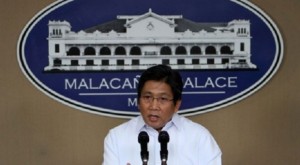MANILA, Philippines–The Department of Science and Technology (DOST) has put up a research and development hub in Laguna to help raise product standards of local traders to make them globally competitive.
The DOST said its Ideation, Design and Development (IDD) laboratory offers product design, development and prototyping for micro, small and medium enterprises and aims to serve as a creative hub for entrepreneurs, designers and students in preparation of the economic integration next year of the Association of Southeast Asian Nations (Asean).
The IDD lab is the main facility of the DOST Provincial Science and Technology Center (PSTC) which is located on the Laguna State Polytechnic University (LSPU) campus in San Pablo City.
In a statement, Laguna PSTC director Samuel Caperiña said the services offered by the IDD lab would benefit entrepreneurs by increasing their sales, reducing costs and waste of resources, and providing greater efficiency.
Caperiña said business ideas and innovations may be concretized in the laboratory using state of the art technology.
Promising student projects will also be tested at the center for possible commercial applications.
Caperiña said workshops in 3D printing and 3D CAD Software (solid edge design software) will be offered to DOST personnel, students and teachers outside and on the LSPU campus.
Design and innovation
According to DOST Calabarzon Regional Director Alexander Madrigal, “Design and innovation are a challenge not just in the private sector but also in the academic community.”
“It’s about time we caught up with other countries and started providing ideation services to industries,” he said, pointing out that in other nations, research and development were handled mainly by academic institutions.
Madrigal said local businesses, through the IDD laboratory, would be able to keep up and compete with their Asean counterparts when the 2015 integration rolls around.
The integration will establish a single regional market that will be highly competitive and integrated into the global economy while ensuring equitable economic development for the Asean member states–the Philippines, Brunei, Cambodia, Indonesia, Laos, Malaysia, Burma (Myanmar), Singapore, Thailand and Vietnam.
Asean integration will free up the movement of goods, services, investments, skilled labor and capital throughout Southeast Asia. But it will specify the areas of cooperation among the member countries and include enhanced private sector involvement.


